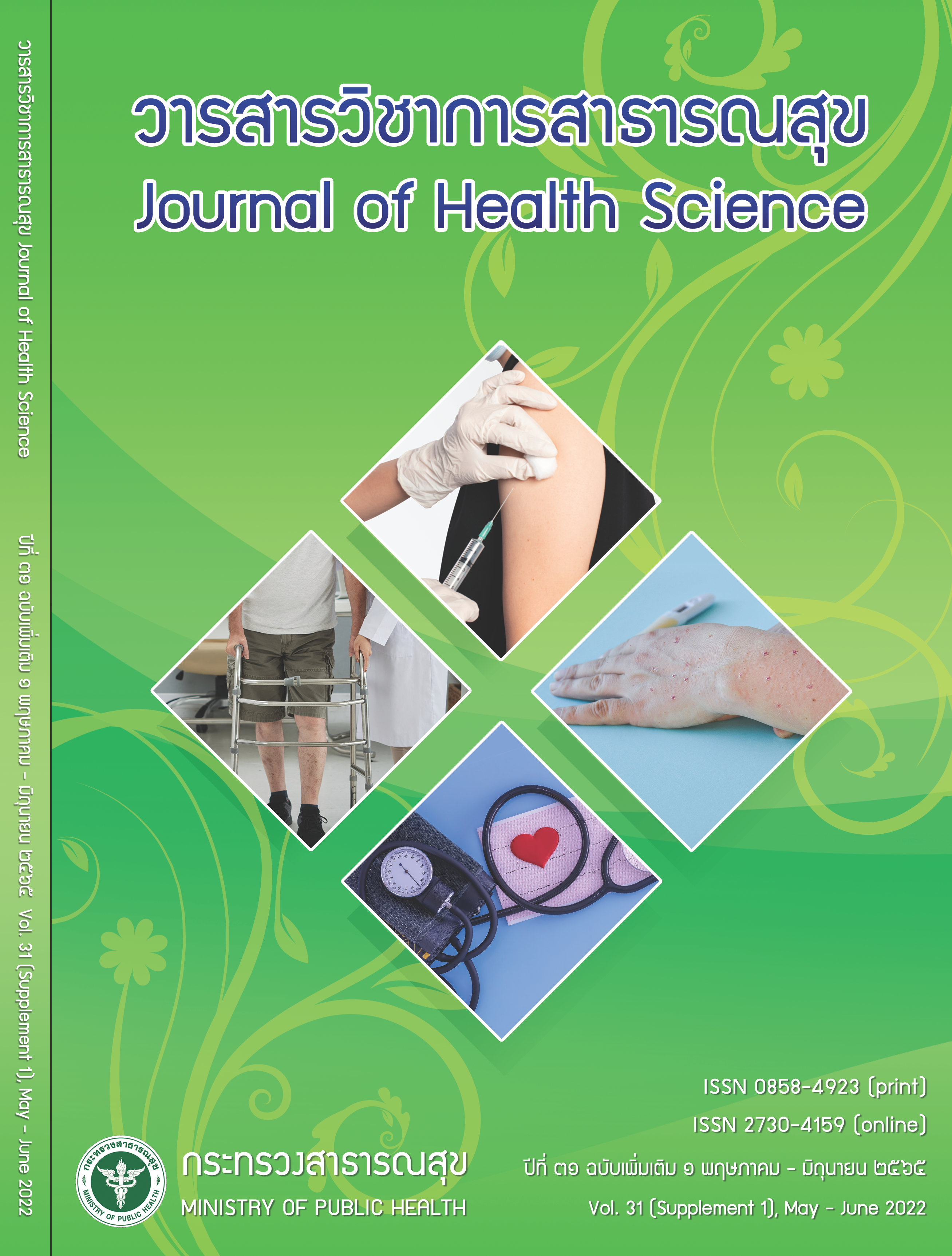Effects of the Changes on Medical Service System in Diabetic Mellitus Clinic of Bangpakong Hospital During COVID-19 Pandemic
Keywords:
diabetes mellitus type II, corona virus disease (COVID-19), blood sugar level, lifestyle modification, patient’s satisfactionAbstract
Since the pandemic of corona virus disease (COVID-19), the consequence of the incidence, which affects mostly to respiratory systems, has become more aggravating and increasing mortality especially in the patients who have NCDs such as diabetes. Therefore, the Diabetes Clinic of Bangpakong Hospital has adjusted service guidelines to reduce congestion and the risk of infection in this group of patients. However, the lack of services from healthcare professionals may affect health behavior and blood sugar control. The researchers therefore had the aimed to evaluate the effects of the changes medical service system in diabetic mellitus clinic on fasting blood sugar (FBS) and glycated hemoglobin (HbA1c.). Thess included diabetes control behaviors and service satisfaction during the 2019 novel coronavirus pandemic. It was conducted as a retrospective cross-sectional study using secondary data of the patients in the diabetes clinic between October 2019 and July 2020 with FBS and HbA1c for the last two visits before 24 March 2020, of whom the qualifications met the inclusion criteria from the HosXP program. The general demographic data were analyzed with descriptive statistics: nominal variables by number and percentage, for continuous variables with the minimum, maximum, mean±SD, the difference in FBS and HbA1c level was tested before and after by Wilcoxon signed rank test, and correlated of behavior with Chi-square test, satisfaction by mean±SD. As for the results, a total of 137 patients were included in the study. Most of the samples were categorized as well controlled group, 71.5% (n=98) and moderately controlled, 28.5% (n=39); females 54.7% (n=75); average age range of 61-70 years old, 31.4% (n=43). Most of all have taken oral medication, 98.5% (n=135). The mean and standard deviation (SD) of FBS level before and after service adjustment was 130.36±15.57 mg% and 149.8±33.58 mg%, respectively; which was statistically significantly increased (p<0.05). Similarly, the mean±SD of HbA1C level before and after service adjustment was 6.59±0.76 % and 6.85±1.09%, respectively which was also statistically significantly increased (p<0.05). The lifestyle modification to control blood sugar level of diabetes patient was at a well controlled level, 46.7% (n=64) and moderately controlled level, 53.3% (n=73). The patient’s satisfaction was mostlt at high level. Thus, the adjustment of healthcare service resulting in increasing blood sugar level of diabetes patients. Therefore, the improvement of the service model needs to be developed considering the patient’s ability to control the disease and be consistent with the current situations and participation of the community.
Downloads
Downloads
Published
How to Cite
Issue
Section
License

This work is licensed under a Creative Commons Attribution-NonCommercial-NoDerivatives 4.0 International License.







